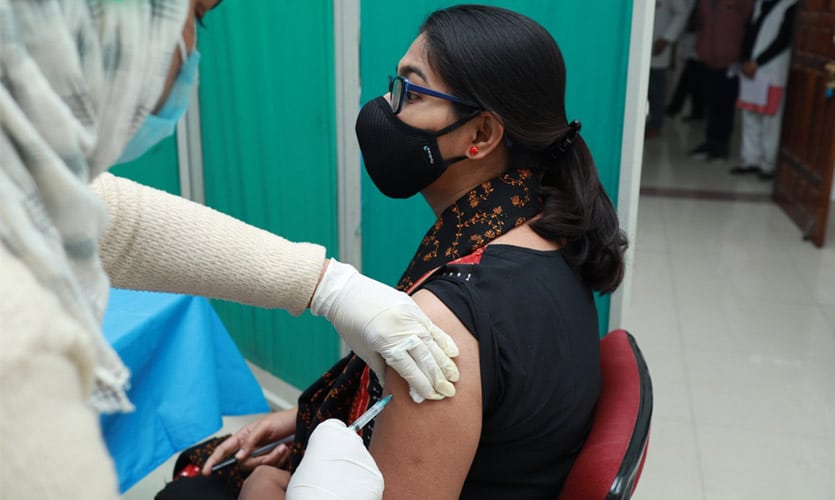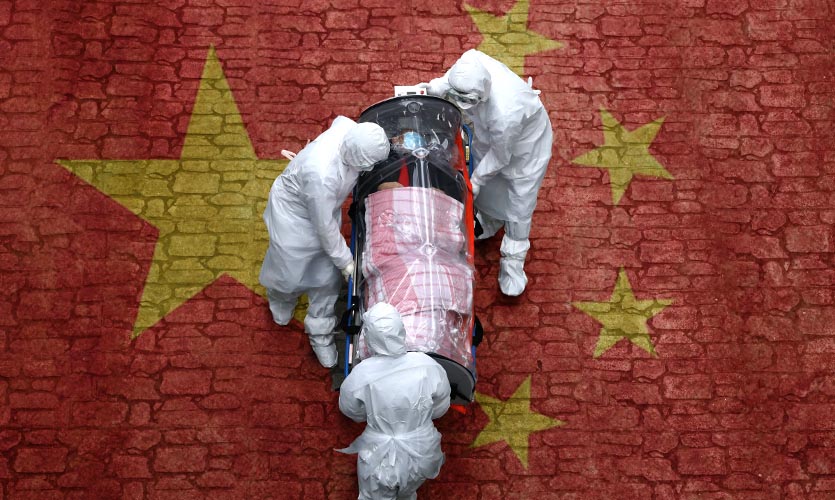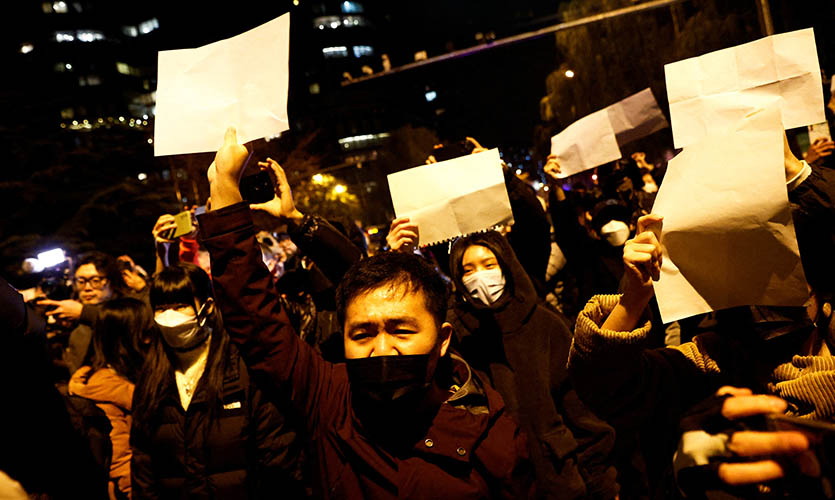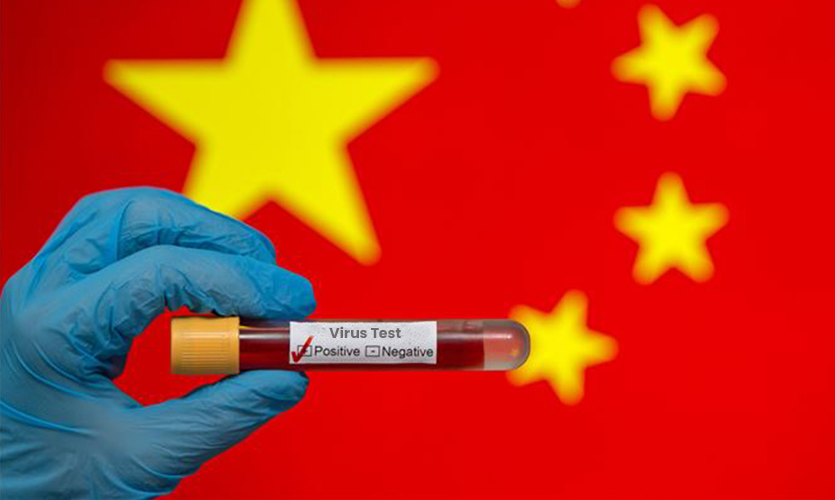Last Thursday, the US news media company CNN fired three employees who reportedly violated its company policy by coming to work unvaccinated against the COVID-19 virus. According to a memo sent to the staff on August 5, obtained by the Associated Press, CNN president Jeff Zucker informed employees about the firing and the company’s zero-tolerance policy on such instances. The memo stated that employees need to be vaccinated to come to the office or to work on the field with other employees.
“Everyone from news, sports and studios who comes in now and going forward must be vaccinated. We have been clear about this for months, so there should be no confusion,” said Zucker. CNN has highlighted that providing proof of vaccination to enter office premises may become a mandatory part of the process as against the honour system adopted earlier.
The latest development at CNN is one of the many rising instances where organisations have updated workplace safety policies that mandate employees to be vaccinated or get regular tests if entering office premises. This policy is an attempt made by businesses to protect employees and encourage the opening of in-person operations which have been halted since the COVID-19 pandemic began.
Zucker further added in his memo that masks will be required in the Atlanta, Washington and Los Angeles offices when people aren’t eating, drinking or in an enclosed private space. Even in offices where mask-wearing is not mandated, people should do what feels comfortable to them “without any fear of retaliation or judgement from co-workers,” he added.
In Silicon Valley, Google, Facebook and Uber recently announced mandatory vaccinations for those returning to the office. New York City and California have made it mandatory for government workers to be vaccinated or get periodically tested.
The rise in the number of Delta variant cases globally has pushed many governments to rethink reopening offices and public spaces. In a White House briefing on July 22, the US Surgeon General Vivek Murthy told reporters that among the majority of serious Delta variant COVID cases so far, 97 percent of hospital admissions and 99.5 percent of deaths are occurring among those who are not vaccinated.
The current plague of the Delta variant and the threat of new variants have created much debate around the suitable path ahead for kick-starting the economy through increased vaccination. Israel, with the highest vaccination rate where more than 62 percent of the population has been fully vaccinated, reported an increase in daily cases as Delta became the dominant strain in the country. The country has started to administer booster shots to people over the age of 60.
Indian States Adopt Mandatory Vaccination Policy
India has been facing its own cases of vaccine mandate policy imposed by different state governments, businesses, apartment areas etc. These policies have been implemented despite the union Ministry of Health and Family Welfare clearly stating that vaccination is entirely voluntary. As per the frequently asked questions (FAQs) on the COVID-19 vaccine issued by the ministry, “Vaccination for Covid-19 is voluntary. However, it is advisable to receive the complete schedule of Covid-19 vaccine for protecting oneself against this disease and also to limit the spread of this disease to close contacts including family members, friends, relatives and co-workers.”
The Gujarat Technological University, Ahmedabad, via an order dated April 22, made it mandatory for all students above 18 years of age to be vaccinated before filling their Winter 2021 examination form.
The Meghalaya High Court, in a recent judgement, said that vaccination cannot be made mandatory. The order came during the hearing of a petition challenging directives made by the Deputy Commissioners in Meghalaya, which made it mandatory for shopkeepers, vendors, local taxi drivers and others to get themselves vaccinated in order to resume their businesses. In this regard, the court held that the vaccination policy of a welfare state (like India) “…can never affect a major fundamental right, i.e., right to life, personal liberty and livelihood…”
Similar rulings of mandatory vaccination for business owners were implemented in Gujarat, Uttar Pradesh and Odisha. In Delhi, the vaccine was made compulsory for all healthcare workers, and the first dose of COVID-19 vaccination had to be taken by February 20.
Read more: List Of COVID-19 Schemes Initiated By NGOs For Social Welfare
Fighting Misinformation With Awareness
Mandatory vaccine measures are implemented under the assumption that vaccine availability is ensured for all on an equitable basis. However, in India, the ground reality is very different. Almost eight months after starting the world’s largest vaccination drive, India has managed to administer two jabs to just over 8.3 percent of its population.
India faces the added issue of vaccine hesitancy that has hindered an already scarce vaccine rollout, particularly in rural areas. The state of Bihar is currently facing a major misinformation campaign issue on social media and Whatsapp, causing a rise in vaccine hesitancy. The common theme of denial is that vaccines cause infertility or death. There have also been reports of attacks on mobile vaccination centres. Local authorities have been offering villagers home appliances such as fridges and fans and even gold coins as incentives to boost the vaccination turnout.
The hesitancy is also seen among the educated and elite, including doctors, some of whom are concerned in particular by the domestically produced Covaxin, which still does not have the World Health Organization’s approval.
In the US, employers can legally push for different floors that segregate the vaccinated and unvaccinated. However, such policies that focus on forceful vaccinations by law and segregation will only push vaccine deniers away. Experts believe there are numerous ways in which private companies can team up with governments to educate and spread awareness among vaccine deniers. Incentivising vaccination without making it mandatory will encourage more employees to come ahead and take the vaccine. Walmart, for example, is offering a $75 bonus for employees who provide proof they were vaccinated.
Educating employees on basic information about vaccine risks helps them overcome hesitancy and make informed decisions. When such data is not provided it leads to confusion among people and pushes for increased misinformation and conspiracy theories.
In India, campaigns run along with governments and collaborations with local influencers, religious leaders, traditional healers, local NGOs, local doctors, panchayat heads, etc., may encourage vaccine uptake. COVID-19 is the greatest public health challenge we face and it will require a target-based approach focusing on the needs and concerns of individuals, groups, and communities.










